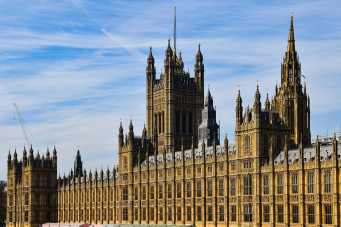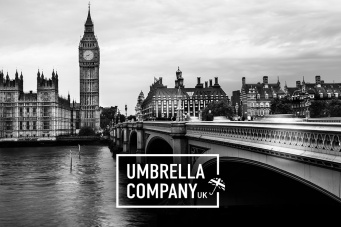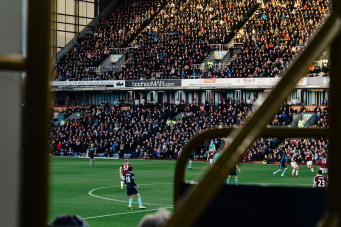
In The Frame August '19
Streaming / Online / Tech
A consensus emerged at this year’s Edinburgh TV Festival, which draws about 2000 delegates from the major networks and production companies internationally. UK broadcasters are both “doubling down” on their catch-up services, such as BBC iPlayer, ITV Hub and All4, to offer audiences more flexible viewing and challenge Netflix, and commissioning more diverse British content from across the country in order to differentiate their offering compared with international streaming companies.
Another recent challenge to Netflix is the merging of CBS and Viacom, which used to be the same company but split years ago. CBS and Viacom “needed to combine to compete with the likes of Apple, AT&T, and Disney, which are all trying to compete with Netflix”, says vox.com.
Netflix has signed a deal to rent out 134,000 square feet of production space in Uxbridge. Netflix had already bought exclusive access to most of the facilities at Shepperton studios, including its 14 sound stages, from October.
Dorothy Byrne delivered a “blistering” MacTaggart lecture at this year’s Edinburgh TV Festival. Channel 4’s head of news and current affairs called out “sexist bastards” in TV and cowardly politicians for refusing to subject themselves to TV interviews, and spoke of the need for broadcasters to make “clever and difficult” programmes to attract elusive younger viewers. Ms Byrne also said that Boris Johnson’s shift towards publishing his own videos on Facebook rather than giving sit-down interviews to journalists reminded her of the Russian president, “who also likes to talk directly to the nation”. The full speech is here.
BBC News
Ofcom this month gave the BBC permission to extend the availability of shows on the iPlayer from 30 days to one year as it fights for viewers but small TV companies are saying that the BBC is trying to lease shows for the longer period without increasing their fees. The iPlayer expansion is the biggest since the service’s launch in 2007 and this tactic is seen as a way for the BBC to avoid paying millions in additional licensing costs. Independent TV producers argue that their programmes are less valuable when they’re eventually allowed to be sold on to other services.
The BBC World Service has extended its output on shortwave radio in Indian-administered Kashmir because of the shutdown of digital services and phone lines in the region.
Andrew Neil is to front a new political programme on BBC Two after stepping down from hosting the long-running This Week earlier this year. The 30-minute Andrew Neil Show, on BBC Two at 7pm every Wednesday, will run through the autumn as the country approaches 31 October.
And finally…
- This year’s IBC takes place in Amsterdam as usual next month. The 2018 edition attracted more than 55,000 attendees from 150 countries, exhibiting more than 1,700 of the world's key technology suppliers.
- Jeremy Kyle will soon return to TV screens with a new programme. The cancellation of The Jeremy Kyle Show led to a parliamentary inquiry into a new duty of care for all individuals appearing on reality programmes.
- Channel 4 has signed up the former editor of the Daily Mail Paul Dacre to present a documentary series on the paper and modern Britain.
- Michael Sheen is to play Chris Tarrant in the story of how ‘coughing major’ Charles Ingram cheated his way to a million-pound win on Who Wants to Be a Millionaire?.
- A warning message on gambling TV adverts does little or nothing to reduce the amount that people bet, researchers at the University of Warwick have found.
- Eurosport has signed a deal with the International Shooting Sport Federation to broadcast coverage of its flagship events across Europe and the Asia-Pacific regions, as well as World Cups and European Championships.
- The UK’s fastest-growing media exhibition, the Media Production and Technology Show (MPTS), has bought the assets of the Broadcast Video Expo (BVE), which will close with immediate effect.
- More than half of European workers in the UK visual effects, animation and post-production industry have yet to apply for ‘Settled Status’, according to a UK Screen survey.

How the Employment Rights Act 2025 Is Reshaping the Freelance Market

Umbrella Company Reforms - An Overview
